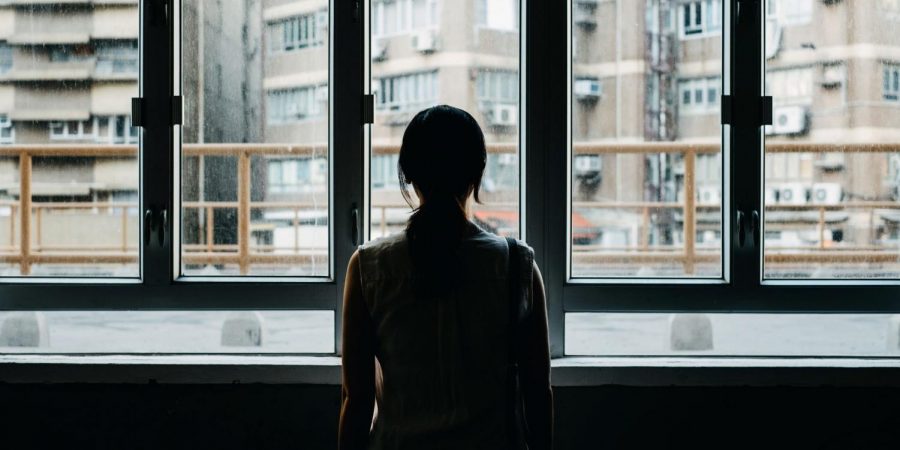Being Quarantined, Words from Dr. Coleman
According to the CDC, isolation has led to a rise in stress, depression, suicides, and mental disorders. Dr. Judith Coleman, Delta State’s Writing Center Director, Language and Literature professor, and remote teacher (for now), reminds us that while these are stressful times, no one is alone in their suffering.
Reasons for Self-Isolation:
One reason why a student or professor might work from home is due to their own health. For example, Dr. Coleman suffers from comorbidities, which causes the sufferer to become immunocompromised. This means coming in contact with a disease such as COVID-19 could cause severe illness or even death. Due to the high risks Dr. Coleman faces, all of her classes have been switched to online. On top of that, she has to stay with her parents while her husband does in-person classes to keep herself safe.
However, this isn’t the only reason someone may self-isolate. In some cases, students/staff are caretakers of family in the at-risk section. In this case, not only is the person working as faculty or students, but also as a reliant for at-risk people.
The final reason for working remotely is when a student or faculty member has contracted the COVID-19 virus and must self-isolate due to CDC guidelines. This can cause a different branch of problems in the classroom and personal aspects because not only have they been quarantined due to a highly contagious virus, but they are also taking classes while suffering from the symptoms of the virus.
Classroom Struggles:
Moving online causes issues for professors and students alike in the classroom. Dr. Coleman describes the class as a community and states that the reason so many students may feel like they are struggling is because they are not able to ask questions face-to-face.
She points out that she is aware that many of her students are struggling to keep afloat in her classroom and others. She believes the reason for this is because, “online courses aren’t what people want, they want the ability to share ideas and get feedback in real-time.”
According to multiple CDC articles surrounding mental health during the lock-downs, she isn’t far off. “In most studies, the isolation of quarantine led to people between the ages of 18 and 28 suffering the most from severe anxiety, depression, and other mental disorders.” As people aged up, the increase of mental illness tapers off, but the risk is still there.
Personal Struggles:
Why are people suffering so much? Well, pre-existing mental disorders, irregular sleep patterns, limited mobility, and lack of human contact all add up to cause many personal issues that aren’t related to school or work.
Dr. Coleman says what’s affected her the most is that, “It’s very tiring to be separated from people.” While Dr. Coleman describes herself as an introvert, she claims that she is more than ready to join society and be around people again.
She also focuses on how her anxiety can sometimes get overwhelming. She mentions how a lot of her worries come from not knowing if her spouse, students, or family may wind up suffering from COVID-19.
“I know that objectively these are extraordinary times and I can’t control everything, so I try to focus on breathing and rationalizing my concerns. However, you can’t talk anxiety out of existence.”
To cope, Dr. Coleman uses breathing exercises to clear her head.
Coping With Isolation:
Dr. Coleman offers a bit of advice and a few coping mechanisms she uses. First, she states that “Now isn’t the time to really care what people will think about the things you enjoy. If you like stickers from Etsy, buy stickers from Etsy. If you enjoy the Twilight franchise, then have a binge session of the Twilight franchise.”
“Allow yourself to not worry about judgment from others in relation to the things you enjoy.” She continues by saying that “Right now, doing what makes you happiest is all that should matter because times are stressful enough as it is.”
As for the coping mechanisms, she mentions meditation, breathing exercises, and hobbies are all incredibly important. If you feel lonely, reach out to peers, friends, colleagues, or family members. Call, zoom, text or voice chat people to remind yourself that there’s someone who has your back throughout this process.
If you are struggling to balance personal and work life, she suggests setting timers for when to do certain things. “I give myself 30 minutes to focus on grading and set a timer. In that time, I only focus on grading. After the timer goes off, I give myself a break to do whatever I want.”
Finally, the most important bit of advice Dr. Coleman has to offer is this: “Sometimes there are deeper underlying problems and that’s okay. But know when to call a professional and get the help you need to be the best you.” There are virtual therapy sessions and text-a-therapist apps that she’s seen advertised.
Some of these apps include TalkSpace Online Therapy, Bloom, 7 Cups of Tea (a website), and BetterHelp. Some emotion tracking apps and meditation apps might also be useful, such as Ten Percent Happier, Woebot, and Sayana. While most of these apps and websites are free for download or use with in-app purchases, they all have high reviews among their users.
In addition to these apps, Delta State has a counseling center that you can go to for help with any concerns you may have. These are free services and are meant to assist students in their adjustment to college life and any other concerns they may have.

“Literature can guide you to yourself.”
Twenty years ago, Raven Runnels popped into existence in Strayhorn, Mississippi. Her small town and Mississippi...



